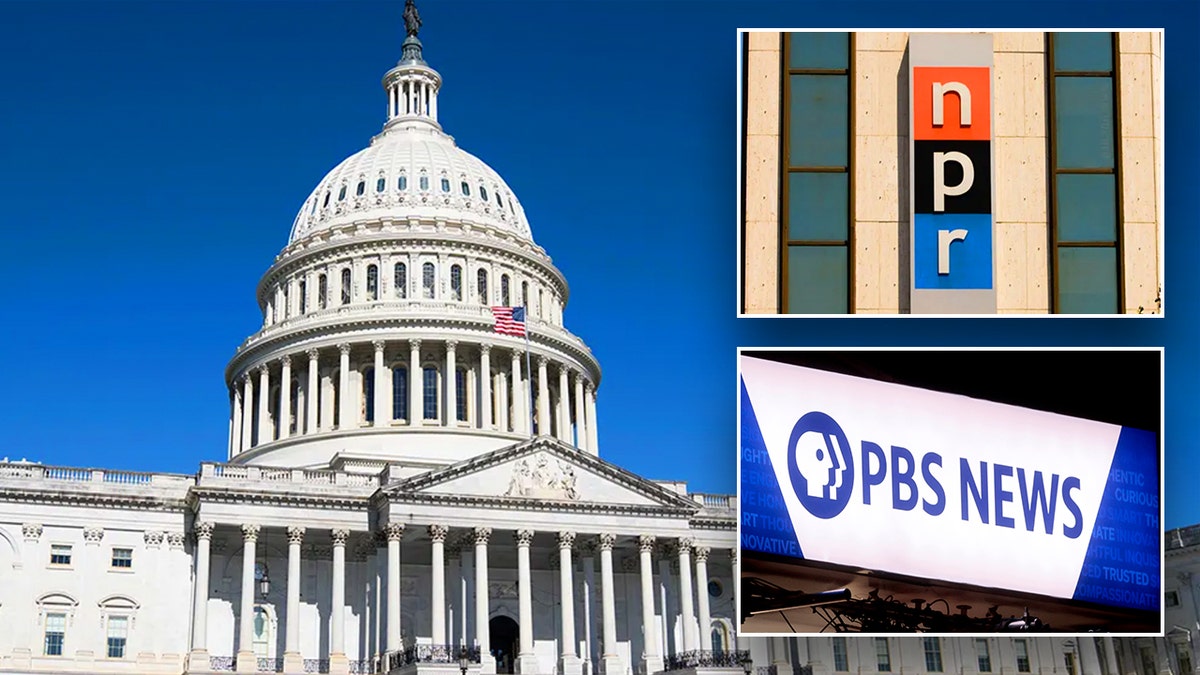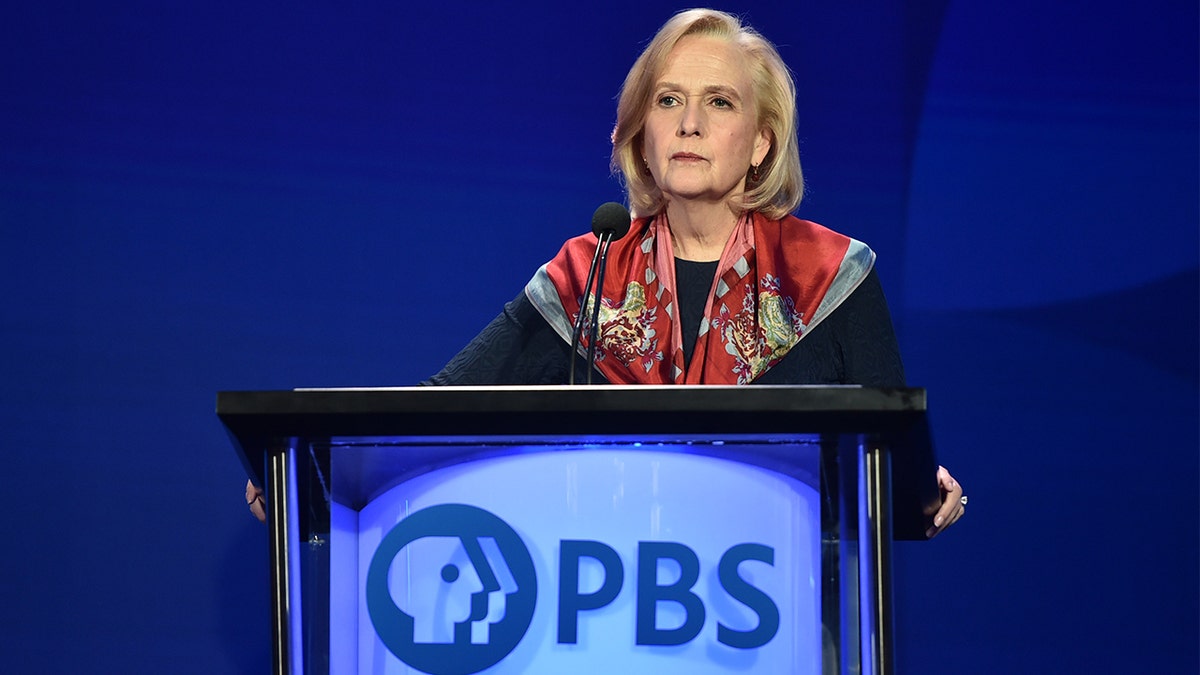EXCLUSIVE – The newly-formed Delivering on Government Efficiency (DOGE) subcommittee in the House of Representatives has invited the heads of NPR and PBS to testify on Capitol Hill to defend the federal funding they receive despite their “systemically biased content.”
Fox News Digital obtained copies of the letters sent to NPR CEO Katherine Maher and PBS Paula Kerger on Monday morning from DOGE Subcommittee Chair Rep. Marjorie Taylor Greene, R-Ga., who intends to address concerns about their “blatantly ideological and partisan coverage” at an upcoming hearing.
The letter sent to Maher cited NPR’s decision not to report on the Hunter Biden laptop scandal in October 2020. NPR said at the time, “We don’t want to waste our time on stories that are not really stories, and we don’t want to waste the listeners’ and readers’ time on stories that are just pure distractions.”
It also cited the April 2024 bombshell tell-all essay penned by veteran NPR editor Uri Berliner, who put a spotlight on the news outlet’s far-left political bias that plagued the newsroom before being pushed out.
NPR CEO Katherine Maher (right) was asked to address the bombshell claims about her news organization by longtime editor Uri Berliner. (Fox News Digital/Getty Images)
The letter quoted Berliner, who wrote “There’s an unspoken consensus about the stories we should pursue and how they should be framed. It’s frictionless—one story after another about instances of supposed racism, transphobia, signs of the climate apocalypse, Israel doing something bad, and the dire threat of Republican policies. It’s almost like an assembly line.”
Additionally, the letter also included comments Maher herself made in 2022 as the Wikipedia CEO, who said “our reverence for the truth might be a distraction that is getting in the way of finding common ground.”
The letter to Kerger invoked PBS’ reporting last month that said billionaire and Department of Government Efficiency co-founder Elon Musk “gave what appeared to be a fascist salute.” Greene wrote “The characterization was clearly false.”
“This sort of bias betrays the principles of objective reporting and undermines public trust. As an organization that receives federal funds, both directly and indirectly through its member stations, PBS should provide reporting that serves the entire public, not just a narrow slice of like-minded individuals and ideological interest groups,” Greene told Kerger, mirroring a sentiment also made to NPR’s Maher.
“This hearing is an opportunity for you to explain to Congress and the American people why federal funds should be used for public television—particularly the sort of content produced by PBS,” Greene continued, echoing a similar statement to Maher regarding public radio.
Both CEOs were asked for their availability to testify “during the week of Monday, March 3rd or the week of Monday, March 24th.”
PBS did not immediately respond to Fox News Digital’s request for comment.

The CEOs of NPR and PBS were invited by the House DOGE Subcommittee to testify about the federal funding their outlets received and address their “systemically biased content.” (llison Robbert/Bloomberg via Getty Images; Eva Marie Uzcategui/Bloomberg via Getty Images)
NPR provided Fox News Digital with the following statement: “Since its inception, NPR has collaborated with local nonprofit public media organizations to fill critical needs for news and information in America’s communities. We constantly strive to hold ourselves to the highest standards of journalism, as evidenced by our publicly available standards and ethics guidelines, the presence of a Public Editor – a position relinquished by all other major news organizations – that allows the public to inquire directly about NPR’s journalism, and strong editorial processes that provide oversight of the entire newsgathering process, including a final review of the nearly 2,000 pieces of journalism aired or published by our newsroom every month. Today our President and CEO Katherine Maher received a request to testify before the Subcommittee on Delivering on Government Efficiency in March. We welcome the opportunity to discuss the critical role of public media in delivering impartial, fact-based news and reporting to the American public.”
According to NPR, 38% of revenue comes from corporate sponsorships, 31% comes from “core and other programming fees,” 13% comes from “contributions of cash and financial assets,” 7% comes from “other revenues,” 5% comes from “PRSS contract, satellite interconnection and distribution,” another 5% comes from endowments and NPR foundation board-designed support and 1% comes from net return on investments.
NPR’s own site goes on to admit that “station programming fees comprise a significant portion of NPR’s largest source of revenue. The loss of federal funding would undermine the stations’ ability to pay NPR for programming, thereby weakening the institution.”
NPR’s finance page also insists the elimination of federal funding would result in less journalism.
So, while NPR publicly downplays its government funding, smaller stations that are funded by the government give cash to NPR. All of this occurs as NPR claims “federal funding is essential” while also pushing back on the notion that it is funded by the government.
PBS’ website states it receives funding in part from the Corporation for Public Broadcasting (CPB), which receives roughly $500 million a year approved by Congress, saying “CPB allocates the appropriation mostly to public television and radio stations, with some assigned to NPR and PBS to support national programming.”
“The News Hour receives about 35% of its annual funding/budget from CPB and PBS via national programming funds – a combination of CPB appropriation funds and annual programming dues paid to PBS by stations re-allocated to programs like ours. The remaining 65% is generated from individual donations, foundation grants and corporate sponsorships,” PBS states.
PBS also receives money through the PBS Foundation, a 501(c)(3) nonprofit organization and a 509(a)(3) supporting organization that seeks “philanthropic gifts and grants” to fund the outlet.

PBS CEO Paula Kerger was asked to testify in front of the newly-formed DOGE subcommittee in March. (Alberto E. Rodriguez/Getty Images)
CLICK HERE TO GET THE FOX NEWS APP
Last week, President Trump’s FCC Chairman Brendan Carr launched an investigation into NPR and PBS over their commercial sponsorships despite them receiving taxpayer funds, suggesting they could be violating federal law.”
“To the extent that these taxpayer dollars are being used to support a for-profit endeavor or an entity that is airing commercial advertisements,” Carr wrote in a letter to NPR and PBS, “then that would further undermine any case for continuing to fund NPR and PBS with taxpayer dollars.”
Fox News’ Brian Flood contributed to this report.

